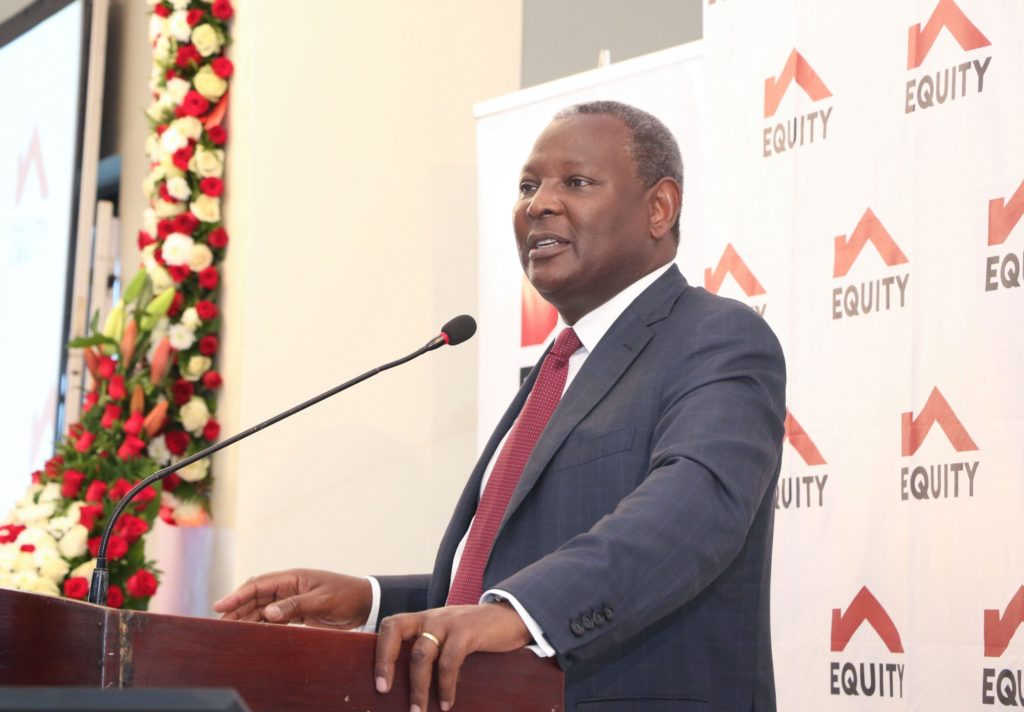Equity Bank has released its Q3 financials, ended on 30 September 2020.
According to the report, which was presented by its CEO James Mwangi, the lender registered a 30 percent jump in its loan book from KES 348.9b to KES 453.9b from September 2019 to September 2020.
Over the quarter under analysis, the bank saw a 45% increase in customer deposits to KES 691 billion, which was driven by a 51 percent growth in Uganda, 21% growth in Kenya and an additional Kshs130 billion from the acquisition of BCDC in DRC.
Loans to customers grew by 30% driven by 37% growth in Uganda, 19% growth by Equity Bank Congo, 15% growth in Rwanda, 15% growth in Kenya and an additional KES 48.5 billion from the acquisition of BCDC in DRC.
According to the bank, the growth in capital weighted loan book and capital geared customer deposits was on the back of a 27% growth in shareholders’ funds following withdrawal of Equity Group Holdings’ 2019 dividend payout.
The balance sheet of the Group grew by 38% from KES 677.1 billion to reach KES 934 billion.
Equity has also been pushing the digital agenda, and has for a long time been strategizing and innovating around digital products. The plan was to digitize the majority of its services, save for corporate functions that have since taken a long time to complete.
Now, for the first time, Equity digital bank has overtaken legacy bank in both the number of transactions and value of transactions handled on a daily basis.
The lender adds that staff jobs have been improved from transaction banking to high-value and non-manual customer engagements.
Furthermore, online banking products and services have seen the most significant growth following a 34 percent jump in digital transactions.
Also, the volume of diaspora remittances grew by 88 percent. Forex trading recorded a 41 percent increase.“We grew our loan book by 30% year on year in order to support our customers who saw opportunities for green shoots and diversification in the COVID-19 environment. Most of the new opportunities we funded were in the manufacturing of PPE’s, logistics, online businesses, agro-processing, fast-moving consumer goods, and agriculture value chains,” said CEO Mwangi.
